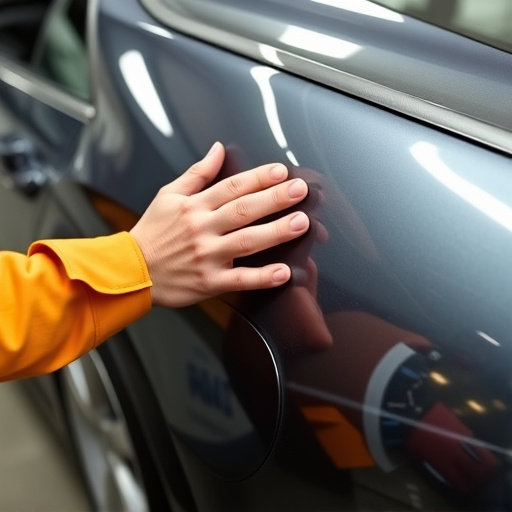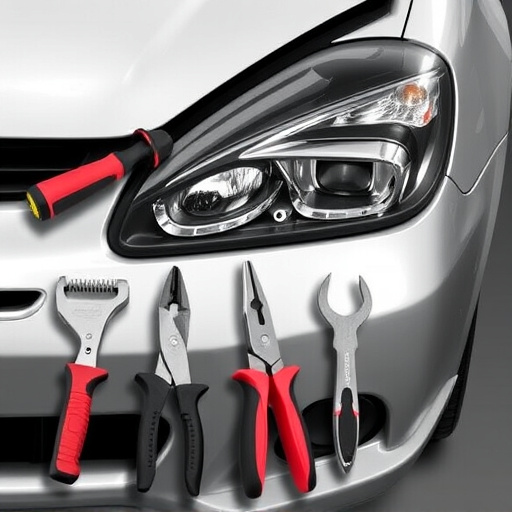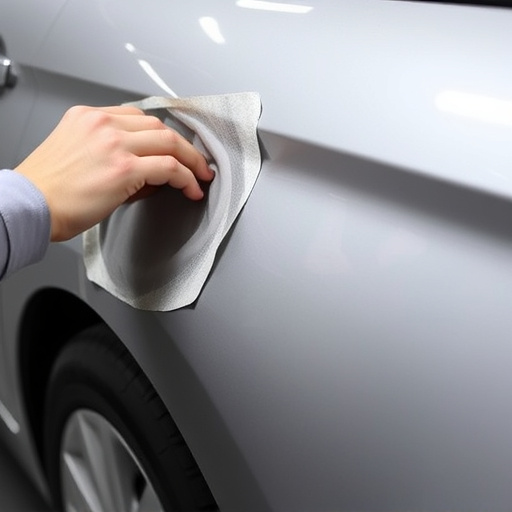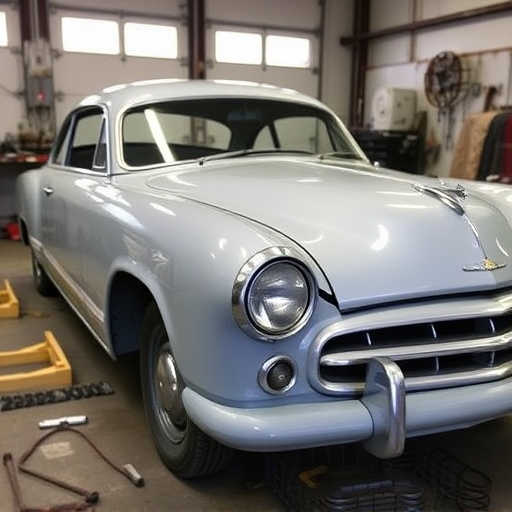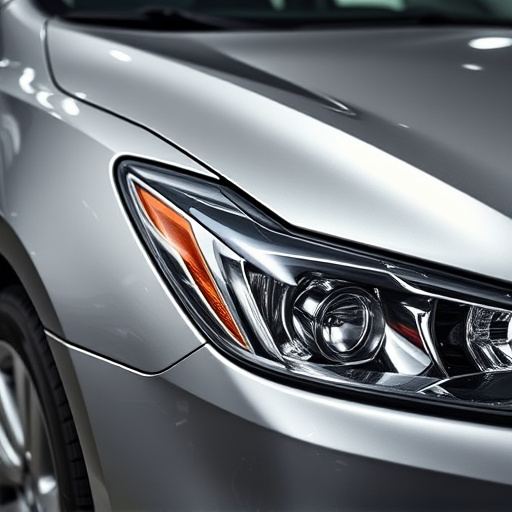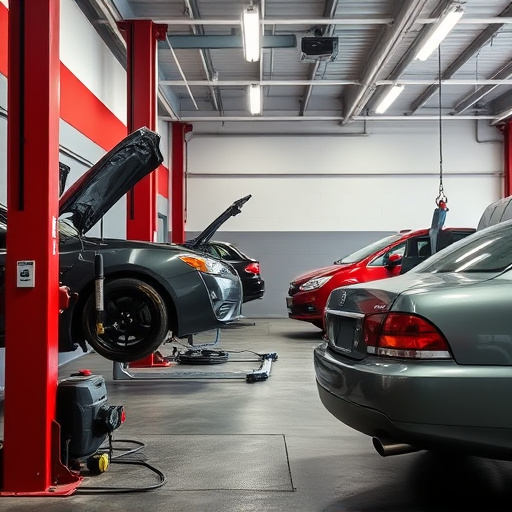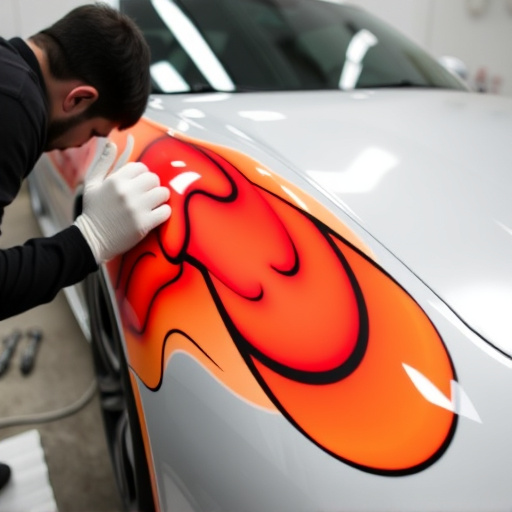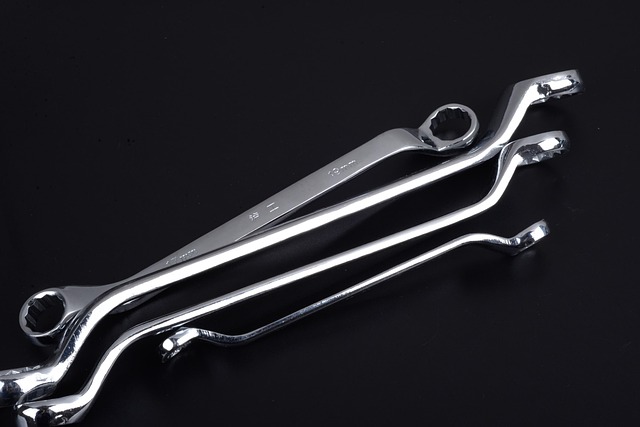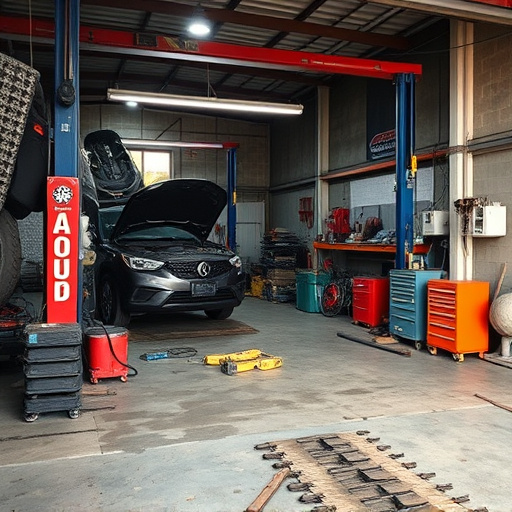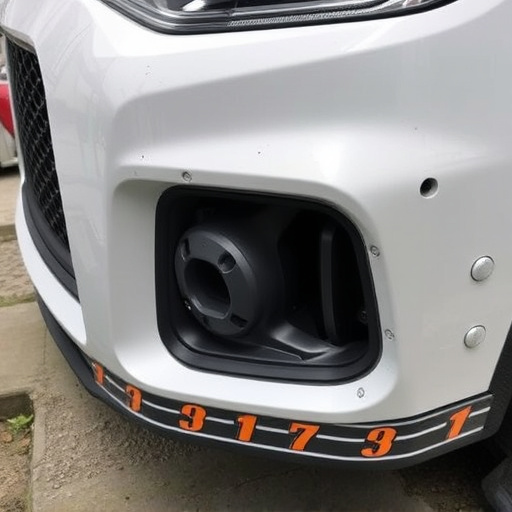Airbag safety certification is a stringent process ensuring airbag reliability and performance after repairs. Specialized bodies conduct simulated crash tests to verify deployment speed, inflation pressure, and overall effectiveness against industry standards. Reputable auto shops adhering to these standards preserve airbags' life-saving capabilities during dent repair or removal. This certification guarantees consumer protection, establishes standardized protocols for repair facilities, and enhances overall road safety across various vehicle types.
Airbag safety certification is a vital process ensuring reliable protection for drivers and passengers post-repair. With rigorous testing and validation, certifying bodies guarantee airbags meet stringent industry standards. This article explores how these standards are met, focusing on understanding key certification criteria and the impact on consumer safety through enhanced repair quality. By delving into these aspects, we highlight the importance of airbag safety certification in today’s automotive landscape.
- Understanding Airbag Safety Certification Standards
- The Role of Testing and Validation in Post-Repair Airbags
- Ensuring Consumer Safety: Certification's Impact on Repair Quality
Understanding Airbag Safety Certification Standards
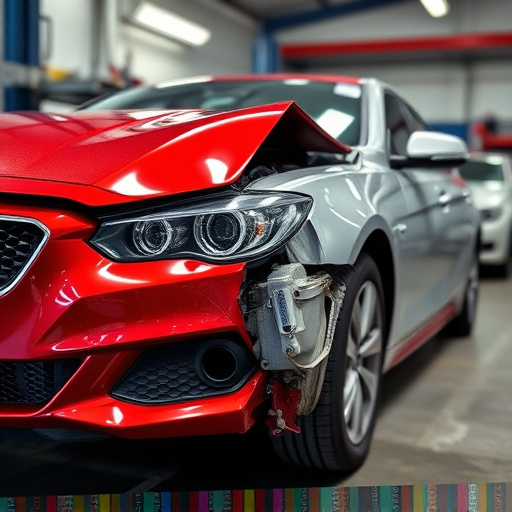
Airbag safety certification is a stringent process designed to ensure that airbag systems function optimally and reliably after any repair or replacement. These standards are critical in the automotive industry, where the safe operation of airbags can mean the difference between life and death during a collision. The primary goal of these certifications is to guarantee that vehicles provide adequate protection to all occupants, regardless of the previous maintenance history or parts replacements.
The certification process involves rigorous testing protocols conducted by specialized bodies to verify the performance and integrity of airbag systems. This includes simulations of various accident scenarios to assess how well airbags deploy and protect passengers. In the context of car dent repair or dent removal, it’s important to note that these procedures should never compromise the structural integrity or functionality of the vehicle’s airbag system. Reputable auto body shops adhering to proper airbag safety certification standards ensure that any repairs or replacements are carried out with utmost care, preserving the life-saving capabilities of the airbags.
The Role of Testing and Validation in Post-Repair Airbags
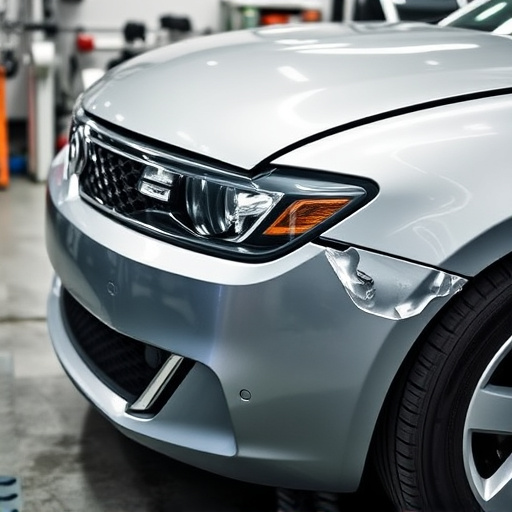
Airbag safety certification is a rigorous process that plays a pivotal role in ensuring reliable performance post-repair for auto repair shops and car collision centers. This involves extensive testing and validation to verify the integrity and functionality of airbags following any car paint repair or car collision repair procedures.
Through simulated crash scenarios, engineers test airbag deployment speed, inflation pressure, and overall effectiveness against industry standards. Every component, from sensors to inflators, is scrutinized to guarantee seamless integration and optimal safety during a collision event. This rigorous testing acts as a quality control measure, identifying potential weaknesses or defects that may have arisen during the repair process.
Ensuring Consumer Safety: Certification's Impact on Repair Quality
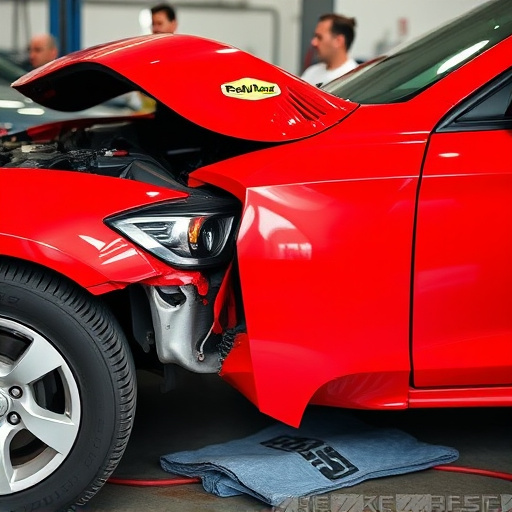
Airbag safety certification plays a pivotal role in ensuring consumer safety, especially after a collision or repair. It sets standardized protocols and guidelines that repair facilities, including specialized fleet repair services and luxury vehicle repair centers, must adhere to when handling airbag systems. This rigorous process involves comprehensive testing and quality checks to verify the integrity and functionality of airbags post-repair.
By implementing such certification, manufacturers guarantee that every replaced or repaired airbag component meets the required safety standards. This is crucial for maintaining optimal protection during accidents, as even minor deviations in repair quality can have severe consequences. Thus, consumers can rest assured that their vehicles are equipped with reliable airbag systems, enhancing overall safety on the road, regardless of whether it’s a fleet of commercial vehicles or a personal luxury car undergoing collision damage repair.
Airbag safety certification plays a pivotal role in ensuring reliable post-repair protection. By adhering to stringent testing and validation processes, automotive manufacturers and repair shops can guarantee that replaced airbags meet or exceed industry standards. This not only safeguards consumer safety but also bolsters the overall quality of repairs. With airbag safety certification as a cornerstone, drivers can have peace of mind knowing their vehicles are equipped with trusted and effective safety systems.

